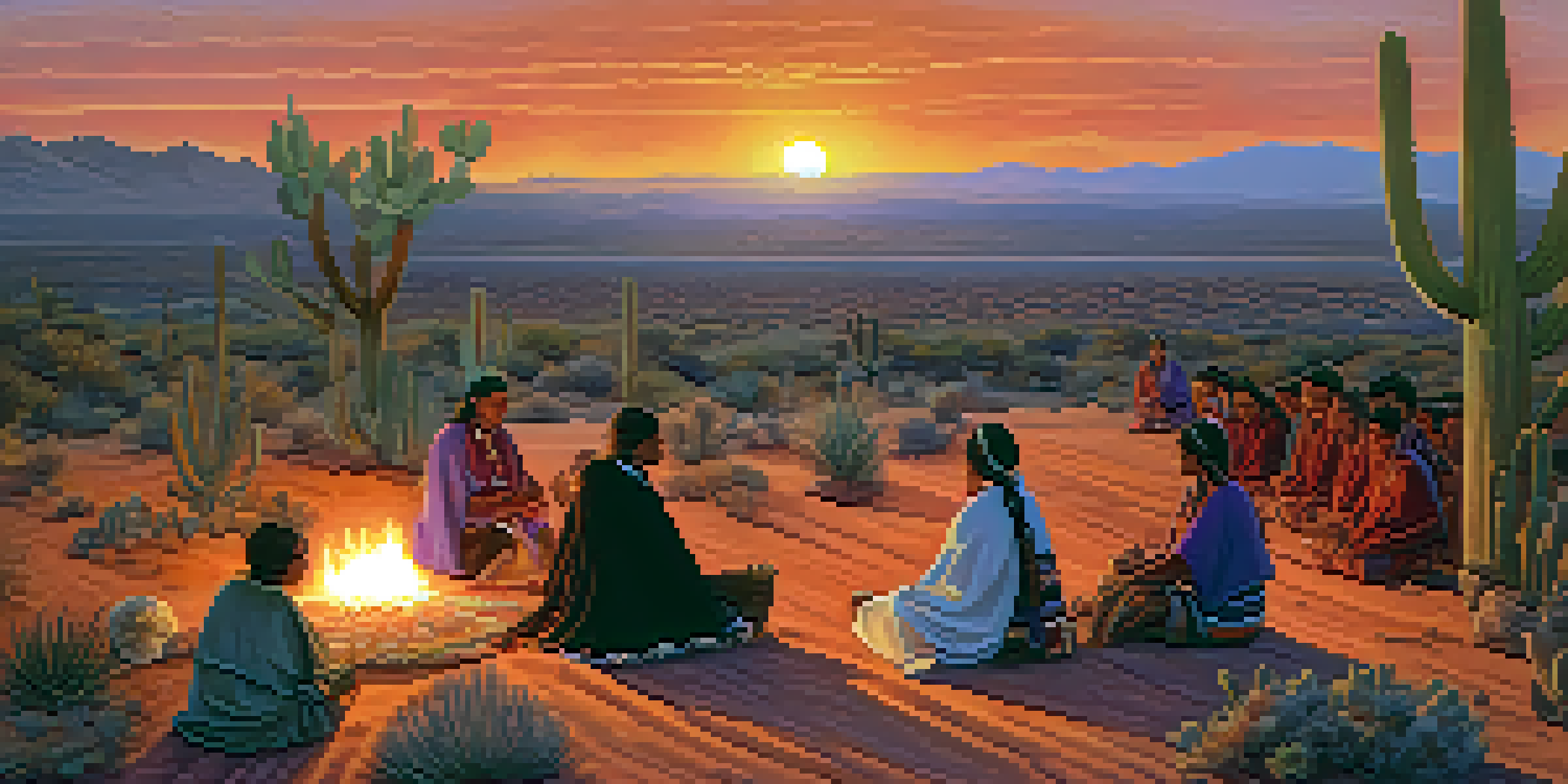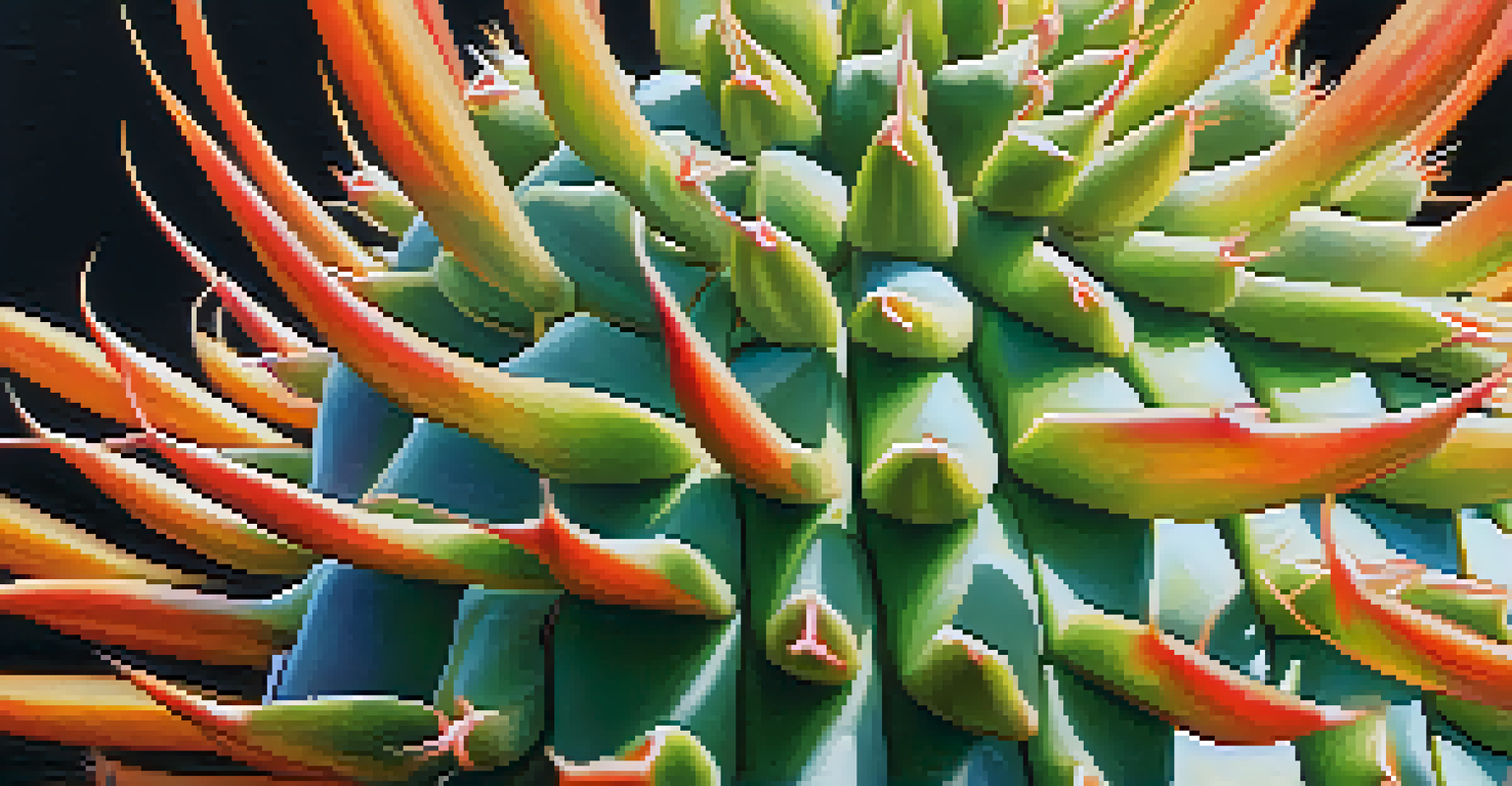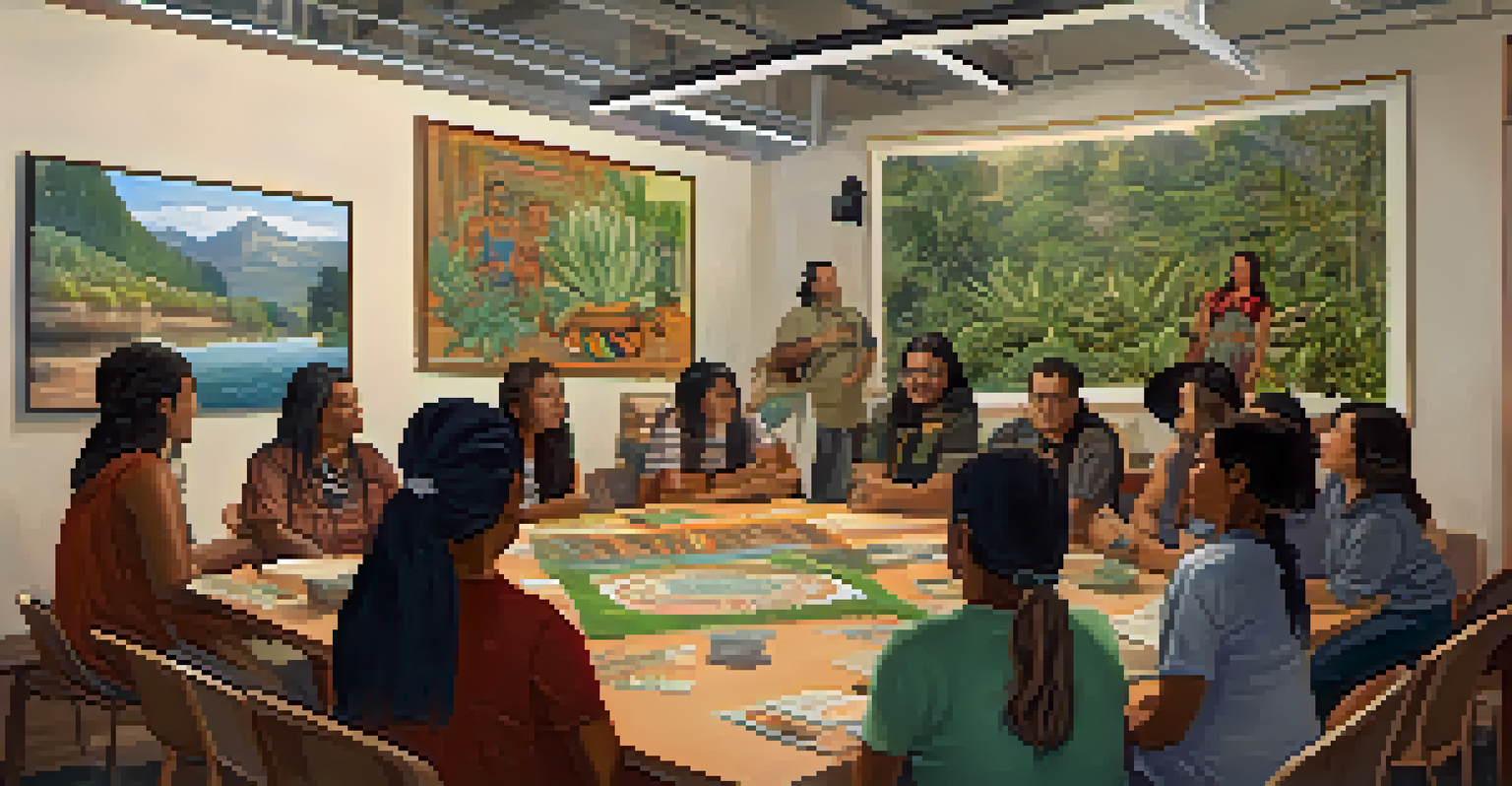Indigenous Activism for Peyote Rights in Modern Society

Understanding Peyote and Its Cultural Significance
Peyote, a small cactus containing the psychoactive compound mescaline, holds immense spiritual significance for many Indigenous communities in North America. For these groups, peyote is not only a plant but a sacred tool used in religious ceremonies and healing practices. This deep-rooted cultural connection underscores the importance of protecting peyote rights against modern pressures.
The plant is a sacred tool used in religious ceremonies and healing practices, emphasizing the importance of protecting peyote rights against modern pressures.
The use of peyote dates back thousands of years, serving as a medium through which Indigenous peoples seek visions, guidance, and a deeper understanding of their spirituality. It is a vital part of the Native American Church and other Indigenous practices, symbolizing a connection to the earth and ancestry. This long history emphasizes that peyote is more than a substance; it is a cultural heritage.
However, the increasing demand for peyote in contemporary society raises concerns about sustainability and the preservation of this sacred plant. As Indigenous activists advocate for their rights, they also aim to educate the public about the importance of respecting and preserving peyote for future generations.
The Impact of Modern Legislation on Peyote Rights
Modern laws surrounding controlled substances often overlook the unique cultural needs of Indigenous peoples. While peyote is classified as a Schedule I substance in the United States, which restricts its use, there are legal exemptions for its use in religious practices. However, these exemptions can be complicated and vary by state, creating confusion and challenges for Indigenous communities.

The legal landscape surrounding peyote rights is fraught with challenges, including the potential for misinterpretation of laws that can lead to criminal charges against Indigenous users. This highlights the need for clearer legislation that acknowledges the cultural significance of peyote while protecting the rights of its traditional users. Activists strive for legal recognition that honors both Indigenous traditions and modern legal frameworks.
Peyote's Cultural Importance
Peyote is a sacred plant for Indigenous communities, serving as a vital tool in spiritual practices and cultural identity.
By pushing for legislative changes, Indigenous activists aim to ensure that peyote rights are respected and upheld. This includes advocating for policies that not only protect the plant but also promote sustainable harvesting practices to safeguard its future.
Challenges Faced by Indigenous Activists Today
Indigenous activists face numerous challenges in their fight for peyote rights, including systemic discrimination and a lack of understanding from broader society. Many people are unaware of the cultural significance of peyote, leading to misunderstandings that can undermine the activists' efforts. This lack of awareness can hinder meaningful dialogue and support for their cause.
The fight for peyote rights is about more than just a plant; it's about justice, identity, and the right to practice one's culture freely.
Additionally, Indigenous communities often have limited resources to effectively advocate for their rights. Many activists are balancing their roles as community leaders with the demands of activism, which can be exhausting and overwhelming. This struggle for resources highlights the importance of solidarity and support from allies who understand the significance of peyote rights.
Despite these challenges, Indigenous activists continue to persevere, using social media and grassroots organizing to raise awareness about their cause. Their resilience is a testament to their commitment to protecting not only peyote but also their cultural identities and traditions.
The Role of Education in Promoting Peyote Rights
Education plays a crucial role in promoting understanding and respect for peyote rights within and outside Indigenous communities. By sharing knowledge about the cultural and spiritual significance of peyote, activists can foster empathy and support for their cause. Educational initiatives can help bridge the gap between Indigenous and non-Indigenous peoples, creating a more inclusive dialogue.
Workshops, community events, and online campaigns are some ways activists are spreading awareness about peyote and its importance. By engaging with diverse audiences, they aim to dismantle stereotypes and misconceptions that often cloud discussions about peyote use. This education is vital for building a broader coalition of support for Indigenous rights.
Need for Legal Clarity
Modern legislation often complicates peyote rights, highlighting the necessity for clearer laws that respect Indigenous traditions.
Moreover, integrating Indigenous knowledge into educational systems can help preserve cultural heritage and promote respect for traditional practices. This effort not only benefits Indigenous communities but also enriches societal understanding of cultural diversity and the importance of preserving it.
Cultural Revitalization Through Peyote Ceremonies
Peyote ceremonies are more than just spiritual experiences; they are vital cultural practices that reinforce Indigenous identity and community bonds. These ceremonies provide a space for healing, reflection, and connection among participants, fostering a sense of belonging and continuity. As Indigenous activism grows, so does the resurgence of these traditional practices.
The revitalization of peyote ceremonies is also a response to the historical trauma faced by Indigenous communities due to colonization and cultural suppression. By reclaiming their traditions, they not only honor their ancestors but also provide hope for future generations. This cultural resurgence is intertwined with the fight for legal rights, as both aim to restore dignity and respect for Indigenous ways of life.
Through these ceremonies, activists emphasize the importance of peyote beyond its psychoactive properties, showcasing its role in cultural healing and community resilience. This connection between activism and cultural practice strengthens the movement for peyote rights in modern society.
Allies and Solidarity in the Fight for Peyote Rights
Allies play a crucial role in supporting Indigenous activism for peyote rights. By standing in solidarity with Indigenous communities, allies can amplify their voices and help raise awareness about the challenges they face. This partnership is essential in creating a broader movement that advocates for cultural rights and environmental sustainability.
Engaging in dialogue with Indigenous activists allows allies to better understand their struggles and support their initiatives effectively. Whether through attending events, sharing resources, or advocating for policy changes, allies can contribute meaningfully to the cause. This collaborative approach fosters a sense of unity and shared purpose in the fight for justice.
Education Promotes Understanding
Educating the public about peyote's significance fosters empathy and support for Indigenous rights and cultural preservation.
Moreover, allies can help educate their own communities about the significance of peyote and the importance of respecting Indigenous sovereignty. By doing so, they can challenge harmful narratives and promote a more inclusive understanding of Indigenous rights, ultimately benefiting the larger movement.
Looking Ahead: The Future of Peyote Rights
As the fight for peyote rights continues, the future depends on the collective efforts of Indigenous activists and their allies. Ongoing advocacy and education remain crucial for creating lasting change and ensuring that the cultural significance of peyote is recognized and respected. This journey requires perseverance and commitment from all involved.
The challenges may be daunting, but the resilience of Indigenous communities serves as a powerful reminder of the importance of protecting cultural heritage. By working together, activists and allies can forge a path toward a future where peyote rights are honored, and traditional practices are preserved for generations to come. This vision encompasses not only the rights to peyote but also the broader recognition of Indigenous sovereignty.

Ultimately, the fight for peyote rights is about more than just a plant; it's about justice, identity, and the right to practice one's culture freely. As society evolves, there's hope that understanding and respect for Indigenous traditions will grow, paving the way for a more inclusive and equitable future.